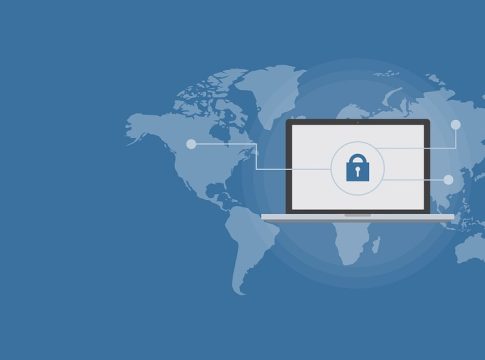In an increasingly connected world, digital security is crucial. With every click, swipe, and tap, we expose ourselves to potential threats that can compromise our personal and financial information. As we move deeper into 2025, understanding and avoiding common digital security mistakes becomes more essential than ever. Are you confident about your online safety, or are you unknowingly putting yourself at risk? Let’s explore some pitfalls that many people fall into, and how you can protect yourself better rather than being just a step behind.
1. Weak Passwords
One of the most prevalent mistakes is using weak passwords. Passwords like "123456" or "password" should be avoided entirely. Instead, create long, complex phrases that combine letters, numbers, and symbols. A strong password might look like "G0od-M0rning!W1nter$un." Don’t use easily guessed information like birthdays or names. You can also use a password manager to maintain unique passwords across platforms, making it easier to stay secure.
2. Ignoring Software Updates
When your device prompts you for a software update, you may instinctively hit "remind me later." However, ignoring updates can lead to serious security vulnerabilities. Software companies constantly patch security flaws in their software. Failure to install updates can leave your device exposed to malware and other threats. Make it a habit to check for updates regularly, and set automatic updates if possible. This simple act can dramatically enhance your digital security.
3. Falling for Phishing Scams
Phishing attacks have become increasingly sophisticated, often using social engineering tactics to trick you into revealing personal information. Many people fall prey to emails or messages that look legitimate but are fraudulent. Always verify the sender’s email address and think twice before clicking on links. When in doubt, go directly to the website rather than using the link provided. Educating yourself about common phishing tactics can help you spot them more easily.
4. Overlooking Two-Factor Authentication (2FA)
If you’re not using two-factor authentication, you’re missing an extra layer of protection. 2FA adds another step to the login process, often requiring a code sent to your phone after entering your password. Many people skip this option, thinking it’s unnecessary. However, in 2025, 2FA is not just a bonus feature; it’s a vital security measure against unauthorized access. Enable this feature on your accounts wherever it’s offered, and you will significantly enhance your digital security.
5. Using Public Wi-Fi Without Caution
Connecting to public Wi-Fi networks can be convenient, but it can also be a minefield for security. Many people log into sensitive accounts without a second thought. Unfortunately, public networks are notorious for being insecure. Avoid conducting financial transactions or logging into sensitive accounts while on public Wi-Fi. If you must use these networks, consider using a Virtual Private Network (VPN) to encrypt your connection.
6. Neglecting Privacy Settings
Many apps and social media platforms often default to sharing more information than you might be comfortable with. Users frequently overlook privacy settings, thereby exposing themselves to data breaches. Regularly review the privacy settings on your social media accounts, apps, and devices to ensure you’re only sharing what you want. Take the time to understand the permissions you are granting. That’s a proactive way to enhance your digital security.
7. Not Backing Up Data
Data loss can occur at any moment due to hardware failure, malware attacks, or even accidental deletions. Yet, many individuals neglect to back up their data regularly. Relying solely on local storage means you’re vulnerable to losing irreplaceable files. Use cloud storage solutions alongside physical backups to safeguard your data. Create a backup schedule—monthly or weekly—to ensure you never lose what matters most.
Building a Stronger Digital Defense
Avoiding these common digital security mistakes is not just wise—it’s essential for effective online safety in today’s world. From using strong passwords to enabling two-factor authentication, each small step can lead to significant improvements in your security posture. Make these practices a part of your daily routine, and stay informed about emerging threats to ensure your digital landscape remains secure. Your online safety is worth committing to!
What digital security mistakes have you encountered or are currently navigating? Share your experiences in the comments below!

Covers viral stories, pop culture, and breaking celebrity news.
Bio: Jamie has a sharp eye for what’s buzzing online, tracking social media trends and entertainment headlines around the clock.

